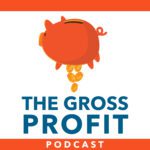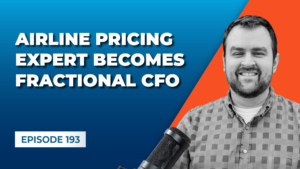Dublin based entrepreneur Peter Connor from BulletHQ talks to James Kennedy about his SAAS business and what the future of banking looks like.
On this episode we talk about:
- Lessons learned from building a SAAS platform
- The current state of the banking industry
- Neo banks and digital banking
- The future of digital banking products
If you’re a SAAS founder or financial professional, listen in and let us know if you have any comments or feedback.
What Is Bullet?
It’s an automated accounts product for SMEs – a workflow based accounting product, meaning you never have to learn accounting logic to do your accounts. Their competitors include Quickbooks, Xero and Sage.
Any company that’s issuing invoices should use Bullet, with an ideal company being a service-based company, like a design agency or media company that is issuing invoices.
What Makes BulletHQ Different In Such A Saturated Market?
Bullet started with a co-founder, a developer who was contracting for a company and the accountant forgot to file his end of year return, so he automatically got into audits. This developer started getting audited and got very frustrated since his accounts were very simple and he was simply sending an invoice to the recruiting company every week. It occurred to him that the accounting software required him to have accounting logic in order to actually be able to use it, so he made a product that didn’t require any.
Peter was building an automated company formation product. The two co-founders met and started building BulletHQ. They tried to partner with accountants and they realised they automated too much. They automated all the mid-year tax returns and accountants didn’t like that. ProcurementExpress.com is in a similar spot as what some call a “pre-accounting solution” so lots of users are not accountancy trained, which is why our purchasing software is actually designed to take the hassle out of company purchasing (and not add anymore!)
What Is A Neobank And What Is The Future Of Neobanks?
It is a new style of bank that has been built with a tech product being at its core- that is probably the biggest difference between a neobank and a traditional bank.
For you to call yourself a bank, you need a banking licence, so most of these banks aren’t technically banks, like Revolut for example, who hasn’t always had a banking licence. Neobanks provide banking services around the transferring and retention of money and they classify themselves often as Ewallets.
Funnily enough, it’s an area of banking that most banks hate because they find current accounts expensive to run, don’t make any money from them and as a result, they have neglected them. Now, many product-focused companies have taken this aspect (current accounts) over and made a business out of it.
How Does Bullet Work?
One of the first things you do is connect an account. Bullet is one of two companies that have partnered with Revolut for this function. There is also a payroll product, which some choose to use separately. hHowever, they have them very heavily integrated, so if you mark an expense paid in your accounts product as by yourself, it will automatically be added to your payroll as an expense.
The price point starts at 15 Euros and goes up to 27 Euros. When it launched, they had 1400 Euros, which included the Company Formation Fee. When they launched Bullet, they knew the price of accounts was dropping and a product called Wave shut down, so they were getting approximately 1200 Wave customers buying their product per month. People don’t value accounts, so when they have no value for it there is also no financial value for it in their heads. When they launched Wave they were charging $14.99 for the product and it failed and they couldn’t get any traction. The founders thought they would just make it free because there was already a lot of money spent on it and they wanted to use lots of ads to make money.
Luckily, it hit the market at right time when content marketing was getting very popular and they became “this regurgitating list of top ten products for free and everyone was being a blogger a wanting their own accounts and stuff and they went from being $14 a month, which is nothing, and not signing up any customers and went to free and were signing up 1400 customers a day.”
Bullet tried to replicate that with the Irish consumer. They were a full freemium product, in other words, all of the product was for free and then you might pay for a tiny upgrade. After launching the product for free, they still couldn’t get 1400 sign ups from their Irish customers and they did that for about 5 years. Bullet then did a secret shopper survey with accountants who would be in their demographic and they all used the fact the product was free as a way to undermine the software and said they wouldn’t trust it. So now, BulletHQ has a paid plan.
Check out BulletHQ here!




